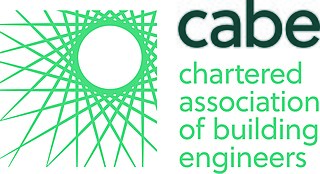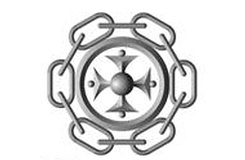The Science Council is a UK organisation that was established by Royal Charter in 2003. The principal activity of The Science Council is the promotion of the advancement and dissemination of knowledge of and education in science pure and applied, for the public benefit. The Science Council is the Competent Authority with respect to the European Union directive 2005/36/EC. It is a membership organisation for learned and professional bodies across science and its applications and works with them to represent this sector to government and others. Together, the member organisations represent over 350,000 scientists. The Science Council provides a forum for discussion and exchange of views and works to foster collaboration between member organisations and the wider science, technology, engineering, mathematics and medical communities to enable inter-disciplinary contributions to science policy and the application of science.
The World Dance Council Ltd (WDC), is a registered limited company, the legal successor to the International Council of Ballroom Dancing, and was established at a meeting organized by Phillip J. S. Richardson on 22 September 1950 in Edinburgh, Scotland. From 1996 to 2006 the WDC was known as the World Dance & Dance Sport Council Ltd (WD&DSC). The stated mission of the World Dance Council is to inspire, stimulate and promote excellence in education for the World Dance Council and Amateur League community.

The British Computer Society (BCS), branded BCS, The Chartered Institute for IT, since 2009, is a professional body and a learned society that represents those working in information technology (IT), computing, software engineering and computer science, both in the United Kingdom and internationally. Founded in 1957, BCS has played an important role in educating and nurturing IT professionals, computer scientists, software engineers, computer engineers, upholding the profession, accrediting chartered IT professional status, and creating a global community active in promoting and furthering the field and practice of computing.
The Imperial Society of Teachers of Dancing (ISTD) is an international dance teaching and examination board based in London, England. The registered educational charity, which was established on 25 July 1904 as the Imperial Society of Dance Teachers, provides training and examinations in a range of dance styles and certified dance teacher courses. The ISTD is recognised by the Qualifications and Curriculum Authority and the Council for Dance Education and Training and is also a member of the British Dance Council. It hosts various competitions in many different formats including Modern Ballroom, Latin American, Classical Ballet and Tap Dance as well as contemporary styles like Disco Freestyle.

The International Dance Teachers Association (IDTA) is a dance teaching and examination board based in Brighton, England. Operating internationally, the IDTA currently has over 7,000 members in 55 countries. The IDTA is recognised by the national qualifications regulators in England and Wales, Ofqual and the Council for Dance Education and Training, and is also affiliated to the British Dance Council, the Central Council of Physical Recreation and the Theatre Dance Council International. The IDTA works in partnership with the Royal Academy of Dance. The IDTA publishes a print and online magazine for members titled Dance International four times a year.

The Royal Academy of Dance (RAD) is a UK-based examination board specialising in dance education and training, with an emphasis on classical ballet. The RAD was founded in London, England in 1920 as the Association of Teachers of Operatic Dancing, and was granted a Royal Charter in 1935. Queen Elizabeth II was patron of the RAD and Darcey Bussell was elected to serve as president in 2012, succeeding Antoinette Sibley who served for 21 years.

The Election Committee is a Hong Kong electoral college, the function of which is to select the Chief Executive (CE) and, since 2021, to elect 40 of the 90 members of the Legislative Council. Established by Annex I of the Basic Law of Hong Kong which states that "the Chief Executive shall be elected by a broadly representative Election Committee in accordance with this Law and appointed by the Central People's Government ." It is formed and performs its selection function once every five years, even in the event of a CE not completing their term. The membership of the Election Committee was expanded to 1,500 under the massive overhaul of the electoral system in 2021. The Election Committee has been criticised for its "small-circle" electoral basis and its composition favouring pro-Beijing and business interests.
The British Association for Counselling and Psychotherapy (BACP) is a professional body for counsellors and psychotherapists practising in the United Kingdom.

Chartered Association of Building Engineers (CABE) is a professional body for building engineers in the United Kingdom and overseas.

The British Dance Council was formed in 1929 as the Official Board of Ballroom Dancing (OBBD). The name was changed in 1985 to the British Council of Ballroom Dancing and in 1996, the name was changed to British Dance Council. The BDC is the recognised governing body for Ballroom, Latin American, Sequence & Freestyle Disco dance in the United Kingdom.
Bryan Isaac is a professional ballroom dancer, who teaches standard and Latin American dance in Bristol, alongside Diane Barron. In his younger days he was West of England ballroom champion with Gay Biffen, and took part in international competitions representing Great Britain.
The Council for Dance, Drama and Musical Theatre (CDMT), formerly known as the Council for Dance Education and Training (CDET), is the quality assurance and membership body for the professional dance, drama and musical theatre industries in the United Kingdom. CDMT was founded in 1979.
The European Music Council (EMC) is a regional group of the International Music Council (IMC) representing Europe. It was established in 1972 as the 'European regional group of the IMC' and was renamed the European Music Council in 1992. The IMC was founded by UNESCO in 1949, and is, today, a non-governmental organisation (NGO), which still retains formal relations with UNESCO. Until 2000 the secretariat was based in Aarau, Switzerland, and is now in Bonn, Germany.
British Property Federation (BPF) is a not-for-profit membership organisation representing companies involved in property ownership and investment.

The Uganda Local Governments’ Association (ULGA) is the National Association of Local Governments of Uganda. It is a private, voluntary and non-profit body.

UKA Dance, formally known as the United Kingdom Alliance (UKA), is a dance teaching and examination board based in Blackpool, England, and operates internationally. UKA Dance was established in 1902 and provides training in a range of dance styles, with examination syllabi for students, and training courses for people wishing to become certified dance teachers.

The Catenian Association is a Roman Catholic lay society with around 8,000 members in a number of English-speaking countries. Catenian men and their families meet socially to help develop their faith and build lasting friendships.
The Institute of Refrigeration is an organisation in the UK that supports the refrigeration and air-conditioning industry.
The West African College of Physicians is a professional society, founded in 1976, for medical specialists in the West African sub-region. The association promotes postgraduate specialist training, professional curriculum development and fellowship certification in six sub-specialties or faculties, Community Health, Family Medicine, Internal Medicine, Paediatrics, Psychiatry and Laboratory Medicine, specifically concentrations in Anatomical Pathology, Chemical Pathology, Haematology and Medical Microbiology. The College also serves as a health policy advisor to many participating governments in West Africa.
The New Zealand Institute of Chemistry (NZIC) was founded in 1931 and is the professional membership organisation for professionals working in the field of chemistry across the education and industry sectors in New Zealand. It is organised into six geographical branches and a number of specialist groups.









